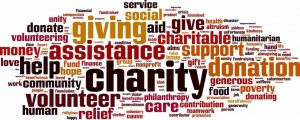Organisations that have used Stepping Stones

Stepping Stones can pose huge challenges for some implementing organisations. It overturns conventional assumptions about “we know best”, about hierarchies of knowledge and decision-making and about the appropriateness of Western bio-medical models of health education and health care. As people who have promoted Participatory Learning and Action (PLA/PRA) have stated for over two decades, “the policy environment and institutional culture within which PRAs are undertaken are important factors that influence, if not determine, the long term success, sustainability and replication of participatory processes.” (Thompson et al 1996, PLA Notes 27). Stepping Stones is no exception. If you would like to read more about this, see, for example here.
If you would like to know if an organisation is already using Stepping Stones in your part of the world, please contact us.
At least 2 UN agencies, many donors, several Governmental National AIDS Control Programmes, many international, and countless national and local NGOs have used and/or funded the Stepping Stones workshops in communities over the years, since 1995 when it was first published. Here we salute some of the key NGOs involved.
o ActionAid is one organisation that has done much to promote the use of Stepping Stones in many of the countries where it works. It supported the Strategies for Hope project in its original development of the material, and was publisher of the original manual. When Strategies for Hope became an independent charity, it took over publication of the manual. Now that Glen and Alison Williams, who ran Strategies for Hope, have retired, Practical Action Publishing are the publishers.
o ACORD, the Agency for Cooperation Research and Development, has used Stepping Stones for some years with its partners in various countries in Africa, and has written a report about its adaptation and use in Tanzania. It conducted a three-year action-research study which monitored the effects of the workshop on diverse communities in Tanzania, Uganda and Angola.
o CAFOD supported Stepping Stones for several years with background funding for the global information sharing side of our work.
o Concern has used Stepping Stones in a number of countries, including Mozambique, where all its staff received training, and in Burundi where it has been used in a variety of contexts, including a coffee processing plant.
o Christian Aid worked with partners in the Caribbean to adapt Stepping Stones for use with and by LGBT communities.
o PLAN International adapted and translated the programme for use with young people across Central and South America.
o Save the Children has adapted and used the programme in many different countries, including Ethiopia
There are also many other organisations, based in countries throughout the world, who are using Stepping Stones as part of their HIV prevention work. Please do let us know what you are doing with the programme, so we can learn from your experience.